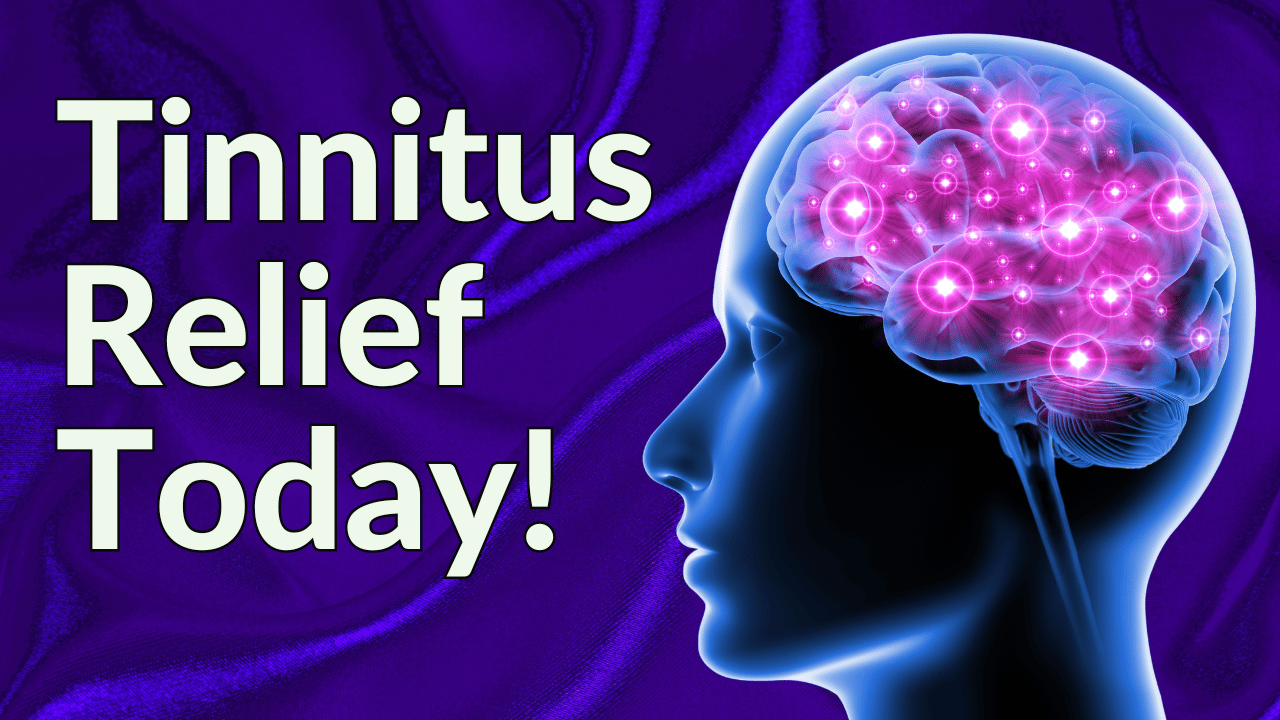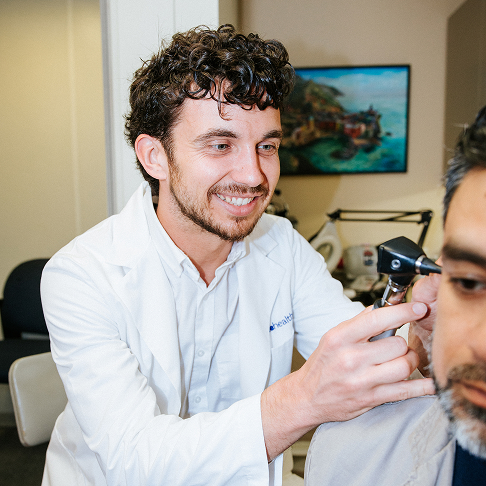Tinnitus, a condition characterized by persistent noise in the ears, and panic attacks, episodes of extreme fear and anxiety, may seem unrelated at first glance. Yet, emerging research suggests a fascinating, albeit distressing, connection between the two.
This article will explore the human mind and ear to better understand how these two conditions intertwine and what this connection might mean for those who suffer from either or both.
What Are Panic Attacks?
Panic attacks are characterized by sudden episodes of intense fear that provoke severe physical reactions in the absence of any real, immediate danger. The sensations accompanying these attacks can be so overpowering that individuals often liken the experience to having a heart attack, losing physical control, or being on the precipice of death.
"Treble Health helped me reduce my tinnitus by about 80%, and now I can live my life again!"

"Treble Health helped me reduce my tinnitus by about 80%, and now I can live my life again!"
– Steve D.
Book a free consultation to learn which Treble Health solution is right for you. Join Steve and thousands more who have found lasting tinnitus relief.
Some people might encounter a panic attack once or twice in their lifetime. However, for others, these unsettling episodes might intrude upon their daily lives multiple times a day or several times a year, causing significant distress and impairment.
The Complexity Of Panic Disorders
Panic disorder is a more complex manifestation, characterized by frequent and unexpected panic attacks, coupled with an ongoing worry about the possibility of the next attack, and a behavioral change due to this worry. This condition typically begins in late adolescence or early adulthood. It is more prevalent in women than men and is often seen in those already living with other anxiety disorders.

The symptoms of panic disorder can be quite profound and distressing, creating significant emotional turmoil and interfering with a person’s daily life. Individuals with this condition experience sudden and recurring panic attacks that are accompanied by overwhelming anxiety and fear. Key symptoms can include:
- A feeling of being out of control or a fear of impending doom during a panic attack
- An intense worry or fear about when the next panic attack will occur
- A fear or avoidance of places where panic attacks have occurred in the past
Alongside these psychological symptoms, physical manifestations of a panic attack can mimic more severe medical conditions. These can include a pounding or racing heart, profuse sweating, chills, trembling or shaking, difficulty breathing, weakness or dizziness, tingling or numbness in the hands, chest pain, and symptoms such as stomach pain or nausea.
Although the exact cause of panic attacks and panic disorder remains uncertain, several contributing factors have been identified. These include a genetic predisposition, major stressors, exposure to traumatic events, smoking or excessive caffeine consumption, and certain personality traits such as being more sensitive to stress or prone to negative emotions.
Additionally, certain changes in the way parts of the brain function may also contribute to the development of this disorder.
The Potential Connection Between Tinnitus And Panic Attacks
The intersection of tinnitus and panic attacks can be traced back to the interplay of psychological and physiological factors. In some individuals, heightened stress and anxiety levels can trigger or exacerbate tinnitus symptoms, a condition characterized by a constant or recurrent perception of noise or ringing in the ears.
When a person is under intense stress or anxiety, it can lead to physiological changes, such as increased heart rate, muscle tension, and elevated levels of stress hormones. These changes can potentially intensify the perception of tinnitus.
During a panic attack, individuals may become hypervigilant and excessively focused on bodily sensations, including the perceived sounds of tinnitus. This heightened awareness and focus can amplify the perception of tinnitus, making it seem louder or more troublesome than usual.
Further to this, tinnitus and panic attacks may share certain neurological pathways or structures in the brain, namely the limbic system (which controls emotions), and the auditory system. Psychological factors also play a role: tinnitus can lead to increased stress, anxiety, and depression, predisposing individuals to panic attacks. Similarly, experiencing panic attacks can heighten anxiety and emotional distress, potentially intensifying the perception of tinnitus.
However, it is crucial to understand that not everyone suffering from tinnitus will experience panic attacks, and not everyone with panic attacks will develop tinnitus.
Tackling Tinnitus And Panic Attacks: A Multi-Pronged Approach
For individuals grappling with tinnitus, a range of strategies are available. Hearing aids and maskers can help improve hearing and mask tinnitus. Tinnitus Retraining Therapy (TRT) aims to habituate the tinnitus signal, reducing its perceived intensity and impact. Cognitive Behavioral Therapy (CBT) can help individuals manage the psychological impact of tinnitus, teaching them how to reframe negative thought patterns and cope better with the condition.

When it comes to treating panic attacks, the first step is usually a comprehensive medical workup to ensure there isn’t an underlying physical condition causing the symptoms. Psychotherapy, particularly CBT, is a mainstay of treatment for panic disorder. CBT helps individuals understand the thoughts and feelings that influence behaviors and teaches them skills to manage and reduce the symptoms of panic.
In some cases, medication might be recommended. These can include antidepressants to manage underlying mood issues, beta-blockers to control physical symptoms of panic, or anti-anxiety medications to relieve acute symptoms temporarily.
Individuals can turn to a range of professionals to seek help for both panic attacks and tinnitus. Primary Care Providers (PCPs), Ear, Nose, and Throat (ENT) specialists, and audiologists can provide medical advice and interventions. Additionally, mental health professionals such as psychiatrists, psychologists, social workers, or therapists can offer psychological support and therapeutic interventions.
Understanding The Connection Between Tinnitus And Panic Attacks
The complex relationship between tinnitus and panic attacks is rooted in various intertwined psychological and physiological aspects.
While panic attacks can unleash extreme fear and intense physical reactions, tinnitus manifests as consistent noise or ringing in the ears, with each condition potentially influencing the other. Shared neurological pathways and amplified psychological distress call for a comprehensive, interdisciplinary approach to treatment.
Key interventions for tinnitus range from hearing aids and maskers to Tinnitus Retraining Therapy (TRT) and Cognitive Behavioral Therapy (CBT). On the other hand, panic attacks are managed through a thorough medical examination, CBT, and possible medication usage.
Despite the connection, it’s crucial to note that not everyone with tinnitus will have panic attacks, and vice versa. Thus, personalized care and professional assistance from PCPs, ENT specialists, audiologists, and mental health professionals are critical in effectively managing these conditions.
Reduce Your Tinnitus With The Treble Health Team
At Treble Health, we have a deep understanding of the relationship between stress and tinnitus, which is key to our approach. We offer a complimentary telehealth consultation to help you learn more about your tinnitus and discuss potential treatment options. Our audiologists are committed to providing care that is as unique as your situation.
By scheduling this 20-minute Zoom session, you’ll have the opportunity to speak directly with our experts, receive answers to your questions, and gain insights into how you can manage your tinnitus more effectively. Don’t wait to reclaim control over your life; schedule your free consultation now.
Next Step: Book Free Consultation
- 75% of patients reduced their tinnitus within three months after following our recommendations.
- "I feel like Treble Health literally gave me my life back." - Randy S. (verified customer)
- Join thousands of people who have reduced their tinnitus after scheduling a free consultation.















